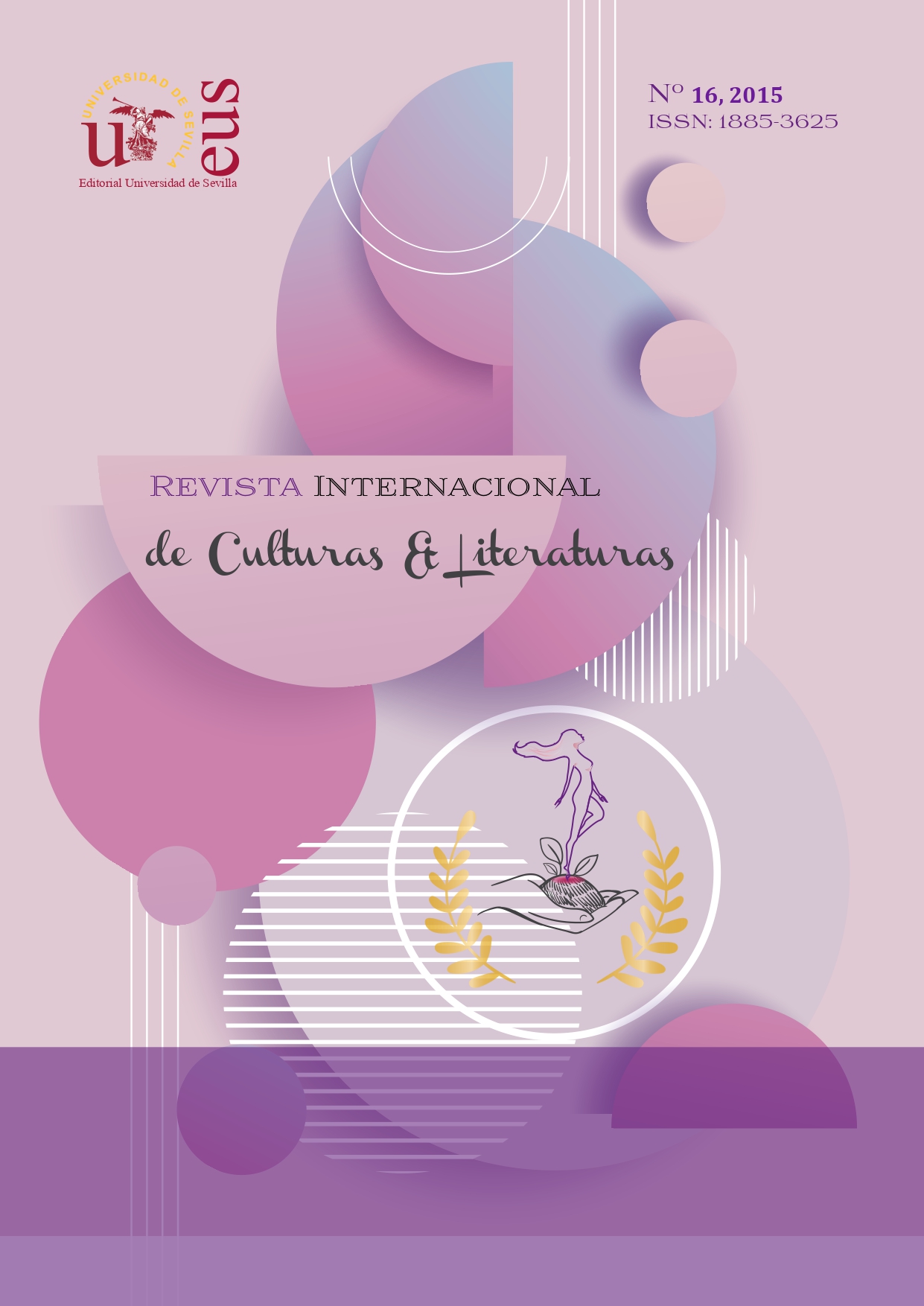LINGUISTIC METAMORPHOSIS AND AUTOBIOGRAPHIC WRITING IN IN ALTRE PAROLE DE JHUMPA LAHIRI
DOI:
https://doi.org/10.12795/RICL.2015.i16.04Keywords:
lengua, italiano, metamorfosis, autobiografíaAbstract
The American writer Jhumpa Lahiri raises in her latest book the problem of linguistic and social identity. The decision to use Italian and not English is perceived as a transformation that the author explains using a technique typical of female writing: the autobiographical story. The language appears then as a key factor in the formation of personal and collective identities. Our proposal examines Lahiri's use of Italian as an engine of change. On the other hand, the author reaches such empathy with the reader that the story becomes a clear example of feminine writing.Downloads
References
Barrios, N., Entrevista a Jhumpa Lahiri. El País Cultura, 1-III- 2014. Internet. 12-03-15.
<http://www.cultura.elpais.com/cultura/2014/02/28/actualidad/1393614323_287588html>
Caballero de Del Sastre, E., -Tola, E., “La transgresión visual como frontera: Ovidio,Metamorfosis III”, CECYM, Centro de Estudios Clásicos y medievales, Cátedra II (2004), pp. 119-150. Internet. 20-03-15
Ciplijauskaitè,Biruté.,“La novela femenina como autobiografía”,AIH. Actas VIII, (1983), pp. 397-405. Internet. 20-03-15. <http://www.cvc.cervantes.es/literatura/aih/pdf>
Dickinson,E., Poemas ,edición de Margarita Ardanaz, Madrid, Cátedra, 2007.
Gimeno Ugalde, E., “La encrucijada bilingüe en la literatura, Reflexiones sociolingüísticas y literarias en torno a L´ultim hom que parlava català de Carles Casajuana”,Revista de
Filología Románica, vol.30, nº1, (2013), pp. 97-115.Internet. 10-03-15.
<http://www.revistas.ucm.es/index.php/RFRM/article/download/42603/40497>.
Didier, B., L`écriture femme, París, PUF, 1981, collection“Ecriture”.
Gimferrer, P., Per riguardo, prólogo de Jacobo Cortines, Fundación José Manuel Lara, Vandalia61, Sevilla, 2014.
Gimferrer, P., Presentación de Per riguardo y El Castell de la pureza. Entrevistas concedidas el 14-XI-2014 y recogidas por Antonio Lucas para el diario El Mundo; Carles Geli para el diario El País y sin referencia de autor en el portal La poesía alcanza. Internet- 25-02-15.<http://www.elmundo.es/cultura/2014/11/1454653cd3268e3ec2408b456c.html>.<http://www.ccaa.elpais.com/ccaa/2014/11/13/catalunya/1415907990_315093.html>. <http://www.lapoesiaalcanza.com.ar/index.php/noticias/1475>.
Lahiri, J., In altre parole, Milano, Ugo Guanda Editore, 2015.
Levi Montalcini, R., Elogio de la imperfección, Barcelona, Ediciones B, 1999.
López García-Mulíns, Á., “Clases de escritores bilingüe: a propósito de José María Arguedas”, Dialogía: revista del ingüística, literatura y cultura , nº3, (2008), pp.95-108.
Internet.23-03-15. <http://www.dialnet.unirioja.es/descargaarticulo/2962892.pdf>.
Moi, T., Teoría literaria feminista, Madrid, Cátedra, 1995.
Tahtah,F.,“El concepto de escritura femenina”, Meah-Sección árabe-islam, 47, (1998), pp. 383-388. Internet. 25-02-15.<http://www.cabei.es/pdf/articulos-2000/6.pdf>
Rivera Garretas, Mª M., “La autobiografía, ¿género femenino?” en Lectora: revista de dones i textualitat, nº5-6, (1999-2000), pp. 85-87. Internet. 08-03-15.
<http://www.dialnet.unirioja.es/descarga/articulo/2227660.pdf>
Vives,J.L., Instrucción de la mujer cristiana, Madrid, Fundación Universitaria Española,1995.
Zavala, I. M., “Las formas y funciones de una teoría crítica feminista. Feminismo dialógico,”, Breve historia feminista de la literatura española (en lengua castellana). Madrid, Anthropos, I, 1993, 27-76.

